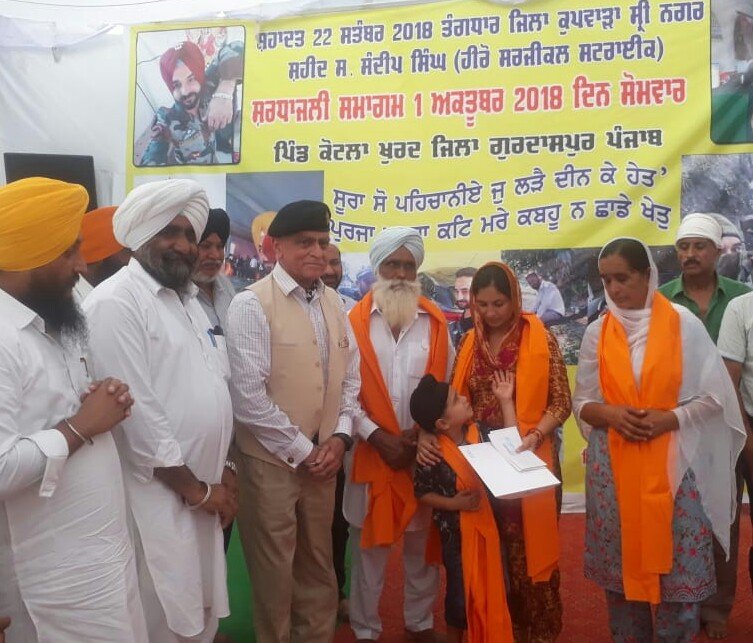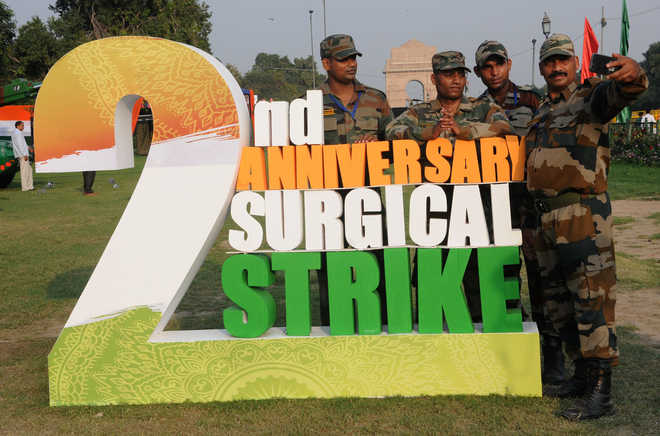
In Pakistan, the Military sets the agenda and the politicos are left to uphold and contextualise its relevance; whereas, in India, the politicos set the agenda and the Military is left to defend thereafter – a fundamental difference between two ‘democracies’, vivisected simultaneously at Independence.

The Military Chiefs in Rawalpindi like to overstay their tenures, so in the same time-period when India has had 26 Army Chiefs, the Pakistanis have just had 16 with many of them formally elevating themselves to the Head of State, for 35 out of the 71 years of Independence. Interestingly, in the residual period of 36 years, the civilian post of the ‘Prime Minister of Pakistan’ has been the most disposable revolving-door with 22 different incumbents (not including 7 caretakers), whereas in India in an uninterrupted period of 71 years of participative-democracy, Narendra Modi has only been the 14th Prime Minister! With this backdrop, the proverbial backing of the ‘establishment’ (read, Pakistani Military) had been the invaluable tailwind in Imran Khan’s success that perpetuates the Pakistani narrative of its Military, defining the destiny. Read This – The rude wake-up call All civilian politicians from the first Prime Minister of Pakistan, Liaquat Ali Khan, who tried to assert the civilian supremacy over the Military were subjected to coups, gallows or now even, the supposed ‘electoral-coup’ of 2018. The ‘Rawalpindi Conspiracy’ of 1951 was the first attempted coup and since then the likes of Zulfikar Ali Bhutto, Benazir Bhutto, Nawaz Sharif, etc., have all faced consequences of overstepping the red-lines defined in the Rawalpindi GHQ. The ‘state-within-the-state’ reputation of the Pakistani Military is burnished with the generous annual budgetary allocations (20 per cent hike, earlier this year), commercial interests beyond its professional domain, and an operating-style that puts it beyond audit questions. So much so, when Prime Minister Imran Khan passionately talks about the selling of cows, cars, land, etc., to generate money and cut costs, he conveniently ignores the elephant-in-the-room i.e. the budgetary allocations and lifestyle of the Pakistani Military. Clearly, the Pakistani Military is beyond cuts, reproach and more importantly, any questions. Read This – Telangana’s electoral paradigm This stalemate confirms and posits the inevitability of the Pakistani Military, whether formally or informally, to be the be-all-and-end-all of all policies and decisions, especially on matters that ensure their relevance in the public imagination i.e. the ‘enemy’ in India. Any thaw or normalcy with India beyond a point and time, essentially delegitimises the edifice of the Pakistani Military, as it stands in their framework. This leaves India with little choice but to recognise and accept the limitations of the civilian Prime Minister of Pakistan, who exists, operates, and contextualises the happenings with the acquiescence of the Pakistani Military. The façade of the civilian government protects the Military from direct engagement and difficult conversations as the civilian government is left defending the misdoings and misadventures, which when cornered can be attributed to the phenomenon of ‘non-state-actors’! The best case scenario of dealing with this Pakistani conundrum is not to expect a permanent resolution to the bilateral enmity, but hoping for a certain form, tenor, and expression of the said hostility. Broadly speaking, the Indo-Pak hostility could be divided into two types: one that existed in the pre-80’s, and that, which came with General Zia and got institutionalised post-Zia with the more insidious, subliminal, and religio-terror escalations that were borne of the cold war calculus involving tactics deployed with Afghan mujahedeen. The overt Islamisation of the period afflicted the reasonably-professional Pakistani Military, with General Zia’s blatant Shariasation project and the promotion of the likes of Lt Gen’s Hamid Gul, Waheed Kakar, Javed Nasir, etc. These were hardened Islamist Generals with known sympathies and commitment towards militant Islamist groups, and with agendas beyond their military mandates, over-spilling into the realm of establishing puritanically Islamist governance systems within Pakistan, and more importantly, across the borders. These men were architects of the ‘Strategic Depth’ in Afghanistan and in fomenting the armed-insurgency in Kashmir valley. However, with Pakistan formally joining the ‘war on terror’ in 2001 and the more deadly frankenstenian-implication of nurturing such overt fundamentalist sentiment within the Pakistani ‘establishment’, played out with the horrific massacre in the Army School at Peshawar, that ignited selective outrage and introspection within the Pakistani Military. The military endeavours like Operation Zarb-e-Azb were symptomatic of the partial-course-correction that sought to take on the terror infrastructure that was Pakistan-facing, whilst still conveniently ignoring India or Afghan-facing terror groups. Today, the Pakistani Military retains its basic professional and westernised moorings, and only panders to propping of terror groups for institutional necessity, expedience, and realpolitik. The interplay of Machiavellian diplomacy, historical-affinities, and internal-pressures often drift the Pakistani Military into the direction of the Islamists terror and the clergy, tactically. The changed global situation of short-patience with terror in any form, Pakistani military’s own bloody experience in creating terror infrastructure and the heightened US pressures to curb the ‘duplicity’ on terror, augur well for further distancing the Pakistani Military from the toxic embrace of the Islamist terror infrastructure. India needs to proactively goad the US in pressurising the Pakistani military, rather than spewing war-mongering threats itself as that will always be met with reciprocal bravado. The form of hostility has to morph and settle from the currently asymmetric form to a more linear shape, as existed in the pre-80’s, that still afforded the Pakistani Military a role-justifying ‘enemy’, without the terrorism infused infrastructure-based support for militant groups, as has been the wont since early-80’s. Punitive US threats would be more palatable and enforceable than those emanating from Delhi, for Islamabad. Basically, neither General Bajwa nor Imran Khan is bigoted-supremacist, and both toe the line of institutional and sovereign necessities, that ironically get threatened without an ‘enemy’. It is this reality that needs to be recognised, reimagined, and even deliberately retained in order to effect practical changes. Threats from Delhi are essentially political and meant only for cadres that perpetuate and exacerbate the tensions, and war should always be the last option. (Lt General Bhopinder Singh (Retd) is a former Lt Governor of Andaman and Nicobar Islands & Puducherry. The views expressed are strictly personal )











































































